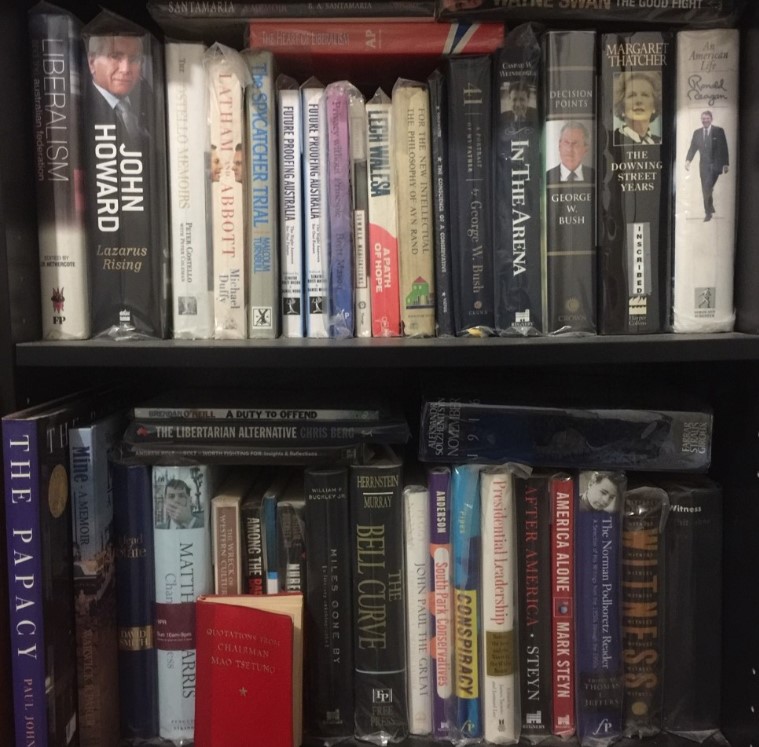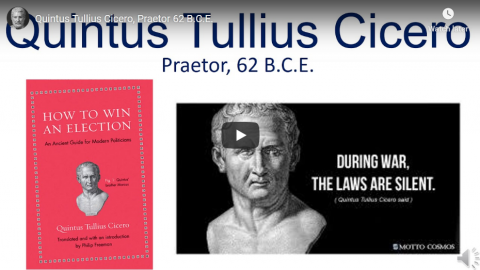Paul Sellers
Published 5 May 2020It’s the small things that make our lives run smoothly, and making this saw clamp for saw sharpening guarantees vibration-free saw sharpening for life.
What’s not to like about a utility piece you made yourself from scrap without turning a single machine on too? Make one of these and you’ll be telling your grandkids that you made it 50 years ago and that you’ve been using it throughout your woodworking life!
We just thought we would let you know that Paul filmed this video (and a few more upcoming videos) by himself in the studio, and they were edited remotely by Natalie.
Our team has spent the last month or so working nearly entirely from home, which leaves the garage/studio free for Paul to use without increasing anybody’s risk from the virus.
Paul wanted to create some specific projects that could be made from scraps of wood using simple tools in order to encourage you all to make things at home if you can.
We think that Paul and the rest of the team have done remarkably well to create something uniquely tailored to the current circumstances, and we hope you enjoy this and the other upcoming videos.
——————–
Want to learn more about woodworking?
Go to Woodworking Masterclasses for weekly project episodes: http://bit.ly/2JeH3a9
Go to Common Woodworking for step-by-step beginner guides and courses: http://bit.ly/35VQV2o
http://bit.ly/2BXmuei for Paul’s latest ventures on his blog
May 6, 2020
How to make a Saw Clamp | Paul Sellers
Georgy Zhukov – Hero of the Soviet Union! – WW2 Biography Special
World War Two
Published 5 May 2020Georgy Zhukov’s rise to one day become the Hero of the Soviet Union did not happen overnight. Instead, the son of a poor tradesman has slowly worked himself up the ranks of the Red Army using his grit, determination, and iron will.
Join us on Patreon: https://www.patreon.com/TimeGhostHistory
Or join The TimeGhost Army directly at: https://timeghost.tvFollow WW2 day by day on Instagram @World_war_two_realtime https://www.instagram.com/world_war_t…
Between 2 Wars: https://www.youtube.com/playlist?list…
Source list: http://bit.ly/WW2sourcesHosted by: Indy Neidell
Written by: Francis van Berkel
Director: Astrid Deinhard
Producers: Astrid Deinhard and Spartacus Olsson
Executive Producers: Astrid Deinhard, Indy Neidell, Spartacus Olsson, Bodo Rittenauer
Creative Producer: Joram Appel
Post-Production Director: Wieke Kapteijns
Research by: Francis van Berkel
Edited by: Mikołaj Cackowski
Sound design: Marek Kamiński
Map animations: Eastory (https://www.youtube.com/c/eastory)Colorizations by:
Carlos Ortega Pereira, BlauColorizations, https://www.instagram.com/blaucoloriz…
Jaris Almazani (Artistic Man), https://instagram.com/artistic.man?ig…
Olga Shirnina, https://klimbim2014.wordpress.com
Sources:
Mil.ru
Cross of Saint-George Issue for subaltern officers 1917, courtesy Robert Prummel
from the Noun Project: company soldiers by Andrei Yushchenko, ak 47 by TMDSoundtrack from the Epidemic Sound:
Reynard Seidel – “Deflection”
Johannes Bornlof – “The Inspector 4”
Johannes Bornlof – “Deviation In Time”
Rannar Sillard – “March Of The Brave 4”
Johannes Bornlof – “Death And Glory 2”
Phoenix Tail – “At the Front”Archive by Screenocean/Reuters https://www.screenocean.com.
A TimeGhost chronological documentary produced by OnLion Entertainment GmbH.
Essential private sector workers and non-essential government workers
A couple of articles at the Foundation for Economic Education look at the arbitrary division of peoples’ jobs into two broad categories:
In a recent TV appearance with Dana Perino on The Daily Briefing, [Mike] Rowe made it clear he’s not a fan of the terms “essential” and “non-essential” worker. The problem with such a view, Rowe said, is that such terms have little actual meaning and the economy makes no such distinction.
“There’s something tricky with the language going on here, because with regard to an economy, I don’t think there is any such thing as a nonessential worker,” Rowe said. “This is basically a quilt … and if you start pulling on jobs and tugging on careers over here and over there, the whole thing will bunch up in a weird way.”
Rowe’s message is precisely what FEE president and economist Zilvinas Silenas was getting at in a recent article published at Townhall.
Allowing politicians to decide which businesses and products are “essential” is an invitation for disaster. If we continue to deny these businesses the ability to do the one essential thing they are best at — providing goods and services to millions of everyday Americans — we risk more than unemployment or recession of stock price plunge. We deprive ourselves of the best resource — our people — during the time of need.
The truth is, all workers are essential.
Unfortunately, all too often what is deemed “essential” is simply what’s convenient to state leaders making the decisions. Few would suggest that liquor store owners are inherently more essential than pizza parlor owners — except perhaps state revenue collectors. No doubt this is the same reason Michigan Gov. Gretchen Whitmer concluded that lottery tickets are essential, but gardening seeds are not.
Liquor stores and lottery tickets aren’t especially “essential” to Americans, just state budgets. But as one Washington State sheriff noted in April, this seems to be the criteria state leaders often use to determine what is “essential” and “non-essential”: whether it helps the government’s bottom line.
When the state picks winners and losers it’s not only unfair, however. It’s also destructive.
In the other piece, J. Kyle deVries points out that government cannot be immunized from the economic harm the shutdown has and continues to inflict on the private sector:
So far millions in the private sector have lost their jobs or have been furloughed — but not many in government have. Many government employees continue to get salaries and benefits despite not working. Their agencies most certainly will not have as much work to do since major portions of the economy are closing down. Many agencies won’t even be needed any longer, but you better believe they will continue to be funded and probably expanded over time. That is outrageous. As we suffer economically, government should not be exempted.
This phenomenon is truly confounding and unfair. After all, government does not exist without taxes and taxes can only come from people who produce and earn a living — in other words, the private sector. The private sector supports government employees who, on average, receive higher pay, better perquisites and much better retirement plans. That should change. As we restructure our economy in the wake of the coronavirus, government should be restructured as well.
Businesses have no guarantee they will remain in business — they must provide their customers with a quality product or service at a competitive price or they will go bust. But government agencies remain in place for life, even if they continue to provide lousy services at outrageous expense. Government needs to show us they are with us during this fight. Part of doing so is to take a hard look at various agencies and departments to see if they can be improved or if they need to be eliminated. Before you say that would be difficult, let’s look at some obvious choices.
Quintus Tullius Cicero, Praetor 62 B.C.E.
Thersites the Historian
Published 25 Jul 2018Quintus Tullius Cicero is best known as the younger brother of Marcus Tullius Cicero who wrote a pamphlet on running for the Consulship, but he was also one of Caesar’s legates in Gaul and a braver than average Roman.
Patreon link: https://www.patreon.com/thersites
PayPal link: paypal.me/thersites
Twitter link: https://twitter.com/ThersitesAthens
Minds.com link: https://www.minds.com/ThersitestheHis…
Steemit/dtube link: https://steemit.com/@thersites/feed
Backup Channel: https://www.youtube.com/channel/UCUrD…
QotD: The French philosophes and the “lower orders”
Apart from the different philosophical status they assigned to reason and virtue, the one issue where the contrast between the British and French Enlightenments was sharpest was in their attitudes to the lower orders. This is a distinction that has reverberated through politics ever since. The radical heirs of the Jacobin tradition have always insisted that it is they who speak for the wretched of the earth. In eighteenth-century France, they claimed to speak for the people and the general will. In the nineteenth century, they said they represented the working classes against their capitalist exploiters. In our own time, they have claimed to be on the side of blacks, women, gays, indigenes, refugees, and anyone else they define as the victims of discrimination and oppression. Himmelfarb’s study demonstrates what a façade these claims actually are.
The French philosophes thought the social classes were divided by the chasm not only of poverty but, more crucially, of superstition and ignorance. They despised the lower orders because they were in thrall to Christianity. The editor of the Encyclopédie, Denis Diderot, declared that the common people had no role in the Age of Reason: “The general mass of men are not so made that they can either promote or understand this forward march of the human spirit.” Indeed, “the common people are incredibly stupid,” he said, and were little more than animals: “too idiotic — bestial — too miserable, and too busy” to enlighten themselves. Voltaire agreed. The lower orders lacked the intellect required to reason and so must be left to wallow in superstition. They could be controlled and pacified only by the sanctions and strictures of religion which, Voltaire proclaimed, “must be destroyed among respectable people and left to the canaille large and small, for whom it was made.”
Keith Windschuttle, “Gertrude Himmelfarb and the Enlightenment”, New Criterion, 2020-02.








